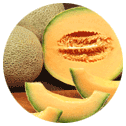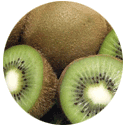 Full List of Fruits
Full List of Fruits  Cedar Bay cherry
Cedar Bay cherryCedar Bay cherry
![]() Introduction of Cedar Bay cherry
Introduction of Cedar Bay cherry
Scientific name - Eugenia reinwardtiana
Cedar bay cherries scientifically known as Eugenia reinwardtiana and it belongs to the Myrtaceae family. Cedar Bay Cherries are also known as beach cherries. The Cedar Bay Cherries has its root in Australia and has also been ranked as one of the best tasting fruits in Australia. Apart from Australia Cedar Bay Cherry has also been found in the lands of tropical rainforest of Indonesia, Pacific Islands and Hawai. These wonderful tasting fruits have an inviting appearance to it.
Cedar bay Cherries have a bright orange-red colored juicy, soft flesh that surrounds a cherry-like pit. Cedar Bay cherries have a sweet flavor tantalizing the taste buds with the flavors of the cherry combined with a tinge of grape taste in it. The thin-skinned fruit has a thin, fleshy, slightly juicy pulp with a mix of sweet and sour flavor surrounding a single seed. This fruit was popular amongst hippies who lived in tropical regions where it was mostly cultivated. Cedar Bay Cherry is a shrub tree and it grows up to 2 to 6 m (6.6 to 19.7 ft) in height. The Cedar Bay Cherry is cultivated though on a limited scale for its fruits in tropics. This tree cannot withstand frost and one must refrain from planting these trees in frost prone area.
![]() Nutritional Value of Cedar Bay cherry
Nutritional Value of Cedar Bay cherry
| Principle | Nutrient Value per 100g | Percentage of RDA | ||
|---|---|---|---|---|
| Cherry type | Sweet | Tart | Sweet | Tart |
| Carbohydrates | 16.1 g | 12.18 g | 12% | 9% |
| Protein | 1.06 g | 1.00 g | 2% | 2% |
| Dietary Fiber | 2.1 g | 1.6 g | 5.5% | 4% |
| Vitamins | ||||
| Vitamin C | 7 mg | 10 mg | 11% | 17% |
| Vitamin A | 640IU | 1283 IU | 21% | 43% |
![]() Various uses of Cedar bay cherry
Various uses of Cedar bay cherry
Below mentioned are the list of uses of Cedar bay cherry
 The tree is cultivated for its most delicious tasting fruit the cherry, it can always be consumed right out of hand or even post processing.
The tree is cultivated for its most delicious tasting fruit the cherry, it can always be consumed right out of hand or even post processing.
 This fruit forms a key ingredient in adding flavors to drinks, candies and other beverages
This fruit forms a key ingredient in adding flavors to drinks, candies and other beverages
 Cedar bay cherry is also a great source of antioxidants, one needs to consume them in order to purify blood.
Cedar bay cherry is also a great source of antioxidants, one needs to consume them in order to purify blood.
 The tree is well-suited to amenity horticulture in the tropics, and is grown in the median strips in Cairns. It is readily propagated from fresh seed.
The tree is well-suited to amenity horticulture in the tropics, and is grown in the median strips in Cairns. It is readily propagated from fresh seed.
 A juicy and flavorful pulp having a very pleasant, berry or grape-like flavor. It is used to flavor to make jams and other preserves.
A juicy and flavorful pulp having a very pleasant, berry or grape-like flavor. It is used to flavor to make jams and other preserves.
 Apart from the fruit the tree also has a hard wood that is used commercially for its tough nature.
Apart from the fruit the tree also has a hard wood that is used commercially for its tough nature.
 The wood is tough and makes excellent firewood ideal for bonfires. It is also used traditionally to make coconut husking stakes and was once used to make rice-pounding pestles.
The wood is tough and makes excellent firewood ideal for bonfires. It is also used traditionally to make coconut husking stakes and was once used to make rice-pounding pestles.
 Adding on to its commercial value and the wood that is derived the cedar bay cherry plant has become a tourist attraction for many forest enthusiast wanting to trek in the dense tropical forest on creeks and rocky water mouths.
Adding on to its commercial value and the wood that is derived the cedar bay cherry plant has become a tourist attraction for many forest enthusiast wanting to trek in the dense tropical forest on creeks and rocky water mouths.
Cultivation is only successful in the tropics also in areas with more or less frost in the subtropics. Occasionally these Plants can tolerate low temperatures as low as down to-1°c. Found in the wild on limestone soils.
The cedar bay cherry can be propagated through germination and by cutting the shoots of the plant to induce growth. In the first method the process is supposedly slow and the seedling growth may not always be fast on the other hand cuttings which are also a bit slow in forming roots. One must use one's discretion and then choose the suitable method to propagate this plant accordingly.
This plant is very receptive to pruning and therefore can be trained into many shapes. This quality of the plant makes it one of the most sought after ornamental shrubs in various gardens and homes.
![]() Health Benefits of Cedar Bay cherry
Health Benefits of Cedar Bay cherry
 High in Antioxidants: Cedar Bay cherries are high in antioxidants, which can help protect your cells from damage caused by free radicals. Antioxidants can also reduce inflammation, which is associated with a number of diseases.
High in Antioxidants: Cedar Bay cherries are high in antioxidants, which can help protect your cells from damage caused by free radicals. Antioxidants can also reduce inflammation, which is associated with a number of diseases.
 Promotes Heart Health: The antioxidants in cedar bay cherries may help protect your heart health by reducing LDL cholesterol, which is the "bad" cholesterol. This may help reduce your risk of heart disease. Additionally, the fiber in cedar bay cherries can help reduce cholesterol levels and help keep your heart healthy.
Promotes Heart Health: The antioxidants in cedar bay cherries may help protect your heart health by reducing LDL cholesterol, which is the "bad" cholesterol. This may help reduce your risk of heart disease. Additionally, the fiber in cedar bay cherries can help reduce cholesterol levels and help keep your heart healthy.
 Good Source of Vitamin C: Cedar bay cherries are a good source of vitamin C, which is an important nutrient for overall health. Vitamin C helps keep your immune system strong, helps your body absorb iron, and can help protect your skin from sun damage.
Good Source of Vitamin C: Cedar bay cherries are a good source of vitamin C, which is an important nutrient for overall health. Vitamin C helps keep your immune system strong, helps your body absorb iron, and can help protect your skin from sun damage.
 May Help with Weight Loss: Cedar bay cherries are low in calories and high in fiber, which can help you feel fuller for longer. This can help you stick to a healthy diet and potentially help with weight loss.
May Help with Weight Loss: Cedar bay cherries are low in calories and high in fiber, which can help you feel fuller for longer. This can help you stick to a healthy diet and potentially help with weight loss.
 May Help with Sleep: The antioxidants in cedar bay cherries may help improve sleep quality. Additionally, the melatonin in cedar bay cherries can help regulate your sleep and wake cycle.
May Help with Sleep: The antioxidants in cedar bay cherries may help improve sleep quality. Additionally, the melatonin in cedar bay cherries can help regulate your sleep and wake cycle.
 May Help Prevent Cancer: The antioxidants in cedar bay cherries may help reduce your risk of certain types of cancer. Additionally, the fiber in cedar bay cherries can help reduce your risk of colon cancer.
May Help Prevent Cancer: The antioxidants in cedar bay cherries may help reduce your risk of certain types of cancer. Additionally, the fiber in cedar bay cherries can help reduce your risk of colon cancer.


















